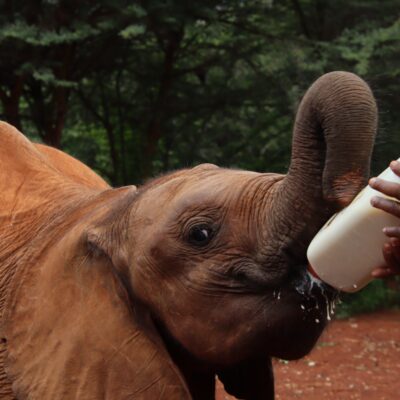by Anthony Siegrist
While I was on my way to work several weeks ago, I was reflecting on an email that had shown up in my inbox some time before. It was an update from an organization working to spur action mitigating climate change. What had caught my attention was the group’s worry that some impending action from a Christian denomination would engage “creation care” and not “climate justice.” That distinction had troubled me, but I couldn’t figure out if my unease was simply personal preference or something deeper.
As I drove outside of town it became clear to me that the denigration of “creation care” was unfair to the many people who have patiently described their decades-long work in those terms. Dismissing the many ways in which “creation care” had likely prepared the way for faith communities to take “climate justice” seriously was hardly justified. I knew the distinction was a problem for other reasons, but at that moment I couldn’t pinpoint why.
Care on the road
I topped a hill in the road and saw several vehicles sitting beside the road. As I slowed down and drew closer, I saw that four or five people had gotten out of their cars and were huddled around something laying on the yellow center line. There were more than enough people on site, and I thought that my best contribution was simply to avoid adding to the congestion. As I drew alongside the cluster of people, I finally made out what lay on the road. It was a large white dog. The dog looked well-fed and wore a collar. I slowly passed. At that moment a woman lifted the dog’s head. Others prepared to move the animal to the side of the road. The great white head drooped over the woman’s arm. The animal’s life drained from its mouth and puddled on the roadway. The car in front of me picked up speed, driving away. Reluctantly, I did the same.
If I’m reading the distinction between “care” and “justice” charitably I assume the preference for the latter is motivated by the sense that it has greater ethical force. Justice is something we can demand. Care is something we offer—if it strikes our fancy. Care is the woman holding the head of the dying dog—nice, but not systemically effective. Justice would demand a changing of the rules to prevent such suffering. In the context of climate change, I expect some people are worried that a creation care agenda wouldn’t touch the political and economic levers necessary to really make a difference.
Care cultivates change
Sometimes the same work gets done regardless of the terms we use, and the debate is a distraction. In this case I think the distinction and accompanying worry is misplaced. Creation care and climate justice are not in tension. Suggesting that they are is destructive. True care includes justice and systemic concerns. We do not adequately care for the children in our congregations if we do not have systems in place to protect them. We do not care for animals if we do not have consequences for those whose negligence harms them.
A concern for climate justice needs to be encompassed by a larger cultural and spiritual change. Without a change in our understanding of which creatures have standing within our formal (or imagined) courts of law, non-human life will never be protected by “justice.” The change required is denoted by an expansion of that for which we care. When we encourage care for creation, we are cultivating this change. Using the term “creation” also has implications for how we treat an earth that belongs not to us but to God. Justice is an indispensable ethical concept, but history has repeatedly shown that the power of justice is limited by the extent of our care.
Climate change is a terribly significant thing, but ecologically speaking, it is not the only thing. Thinking that climate justice is somehow distinct and more significant than creation care within the context of Christian community not only sets up an artificial distinction; it also marginalizes challenges like biodiversity loss. As much as we sometimes say that the biblical writers make distinctions between humans and other creatures, it is also generally true that they see humans as but one type of creature among others. All are considered the “work of God’s hands.” Learning to better care for all of God’s handiwork is the task that confronts us. This applies not just to people, but also to the marvelous plants and animals whose lives are intertwined with ours.
What I wish the group pushing for more climate action had simply said is what I think they meant, which is that they worried the denomination would not undertake serious action that made a difference in the fight against climate change. That is a real concern and a possibility that must be guarded against. However, it is not a problem caused by caring for creation. Engaging climate change requires more care for creation from our congregations, not less.
Anthony Siegrist is the Ontario director of A Rocha Canada as well as a theologian and former Mennonite pastor. Anthony’s most recent book, Speaking of God: An Essential Guide to Christian Thought, is available from Herald Press.
Elephant photo by Dennis Groom on Unsplash
